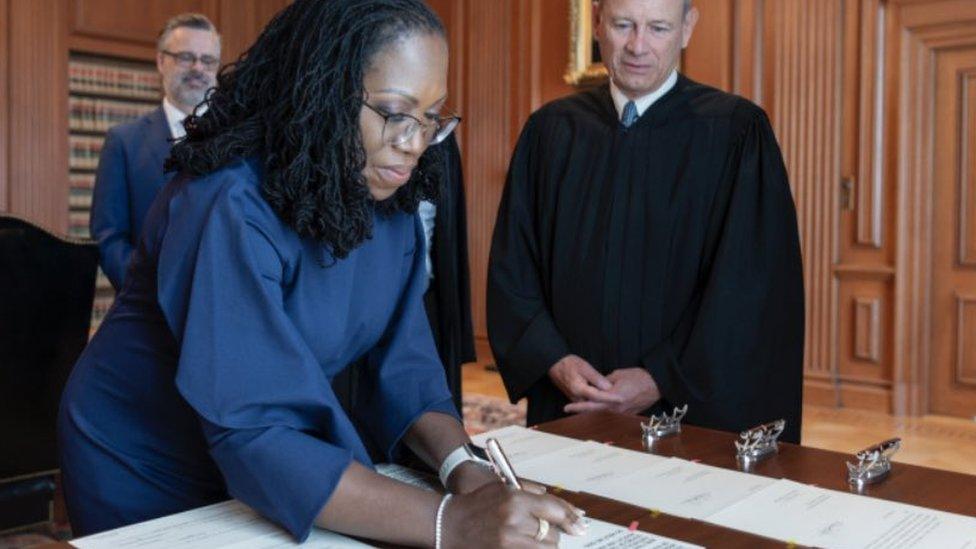Key cases to watch as US Supreme Court returns
- Published
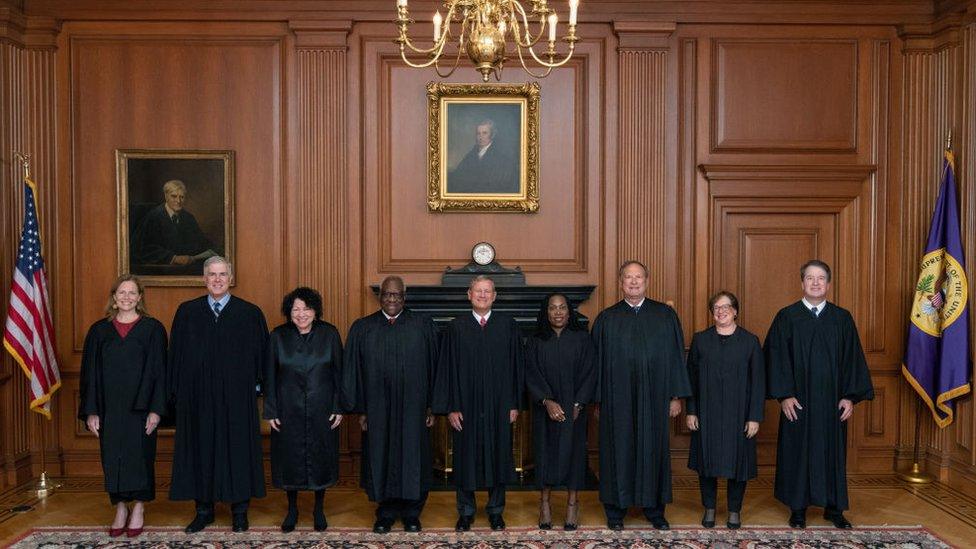
The nine Supreme Court justices begin their new term on 3 October
The nine justices of the US Supreme Court have returned to the bench, marking the start of a new judicial year and another docket teeming with high-profile cases.
During the last full term, which ended in June, the court's 6-3 conservative supermajority expanded gun rights, curtailed efforts to address climate change and eliminated a nationwide right to abortion.
In a Gallup poll released last week, 58% of Americans said they disapproved of the job the Supreme Court was doing while 47% said they had "a great deal" or "a fair amount" of trust in the judicial branch - a 20 point drop from just two years ago.
This term, the court will see another set of landmark cases, including disputes on affirmative action, voting and LGBTQ rights. "It's going to be another blockbuster term - all signs point in that direction," said Tara Grove, a law professor at the University of Texas at Austin.
And while the appointment of Justice Ketanji Brown is historic - she is the first black woman to ever serve on the country's top court - as a member of the liberal minority she is unlikely to chart the course of the court as it moves forward. Instead, power on the court will remain in the hands of its dominant conservative majority.
Here's a look at some of the most important cases on the agenda.
1) College admissions and affirmative action
In two parallel cases, the court will hear arguments on the race-conscious admission programmes of Harvard University and the University of North Carolina.
Both cases were brought by Students for Fair Admissions, a non-profit which aims to restore "colour-blind principles" to universities, and abandon the affirmative action programmes designed to increase educational diversity. The group argues that Harvard's admission policy discriminates against Asian Americans, while the University of North Carolina is accused of selecting black, Hispanic and Native American applicants at the expense of white and Asian students.
This case would expand its views on affirmative action to all colleges - including prestigious universities like Harvard, and force at least a dozen to change their admissions policies.
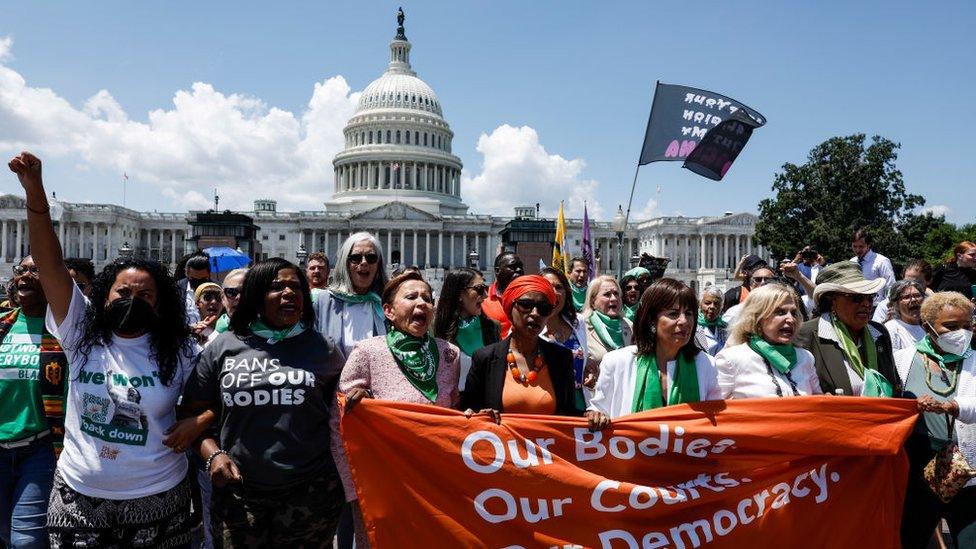
The court has seen a drop in popularity following its June decision in the Dobbs abortion case
The court has previously upheld precedents that allowed colleges and universities to consider race when admitting students. But the conservative majority has demonstrated a willingness to overturn precedent - most notably in the June abortion case, Dobbs v Jackson Women's Health Organization - suggesting that affirmative action is now at risk.
"It's not obvious that this court is getting rid of precedent at a higher rate," said University of Texas' Professor Grove. "What is notable is the way it is taking on hugely consequential precedents, all at once. It's jarring."
Arguments in Students for Fair Admissions v President and Fellows of Harvard College and Students for Fair Admissions v University of North Carolina are scheduled for 31 October.
2) A major election law case
The justices will soon hear an election law case that could grant state governments sweeping authority over how voting maps are drawn - fundamentally changing how US elections are conducted.
Republican lawmakers in North Carolina have asked the court to find that the Constitution's Elections Clause gives state legislatures near total power over how elections are conducted in their state - a theory called the "independent state legislature doctrine".
If the court accepts this argument, it may give legislatures free rein to reshape their electoral maps in order to favour a given party - a practice known as gerrymandering. It may also use this case to rule that only state legislatures can modify election rules - or, in theory, overturn the results of an election based on allegations of voting fraud.
Arguments in Moore v Harper have not yet been scheduled.
3) Business discrimination and free speech
Another case will examine whether public businesses can refuse services to particular customers because of religion or other beliefs.
Lorie Smith, owner of a Colorado graphic design firm, has said that she will provide services to same-sex couples but not for same-sex weddings because of her religion. Compelling her to do so, she argued, would violate her right to free speech.
The court looked at a similar issue in 2018, when a Colorado baker refused to create a wedding cake for a gay couple. Back then, the court sidestepped a major ruling, siding with the baker, but leaving open the larger question of discrimination against LGBTQ Americans.
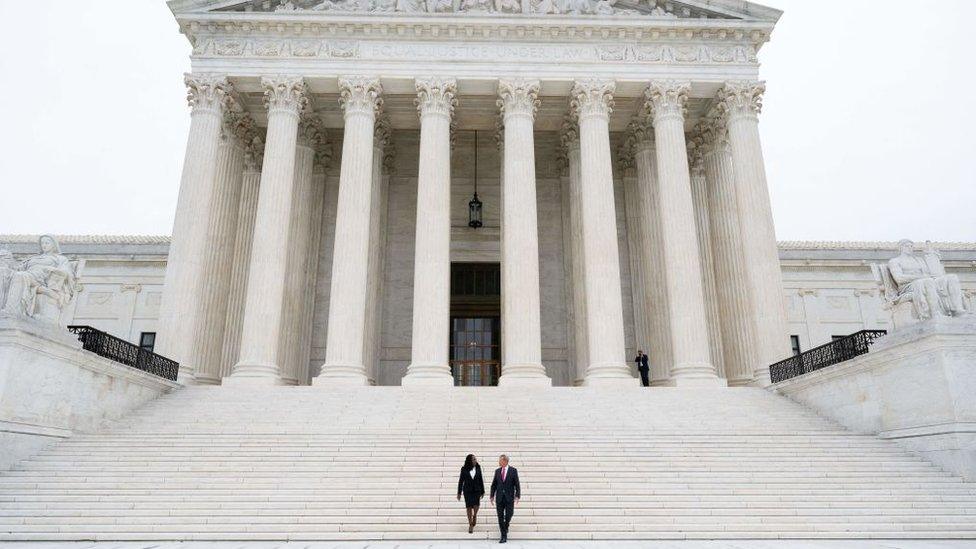
Justice Ketanji Brown Jackson, pictured here with Chief Justice John Roberts, will begin her first term on the top court
There may end up being no better example of how quickly the court has moved to the right in recent years than the decision it issues in this case.
"There's no tacking to the right, the current court is dug in on the far-right of the political spectrum," said William Eskridge, a law professor at Yale University.
Arguments in 303 Creative LLC v Elenis have not yet been scheduled.
4) Fair use and artistic expression
The court will referee a long-running dispute involving Andy Warhol, the king of pop art, and photographer Lynn Goldsmith, who claimed Warhol violated copyright after creating images of Prince based on her work.
Goldsmith took a photograph of Prince in 1981, posing him against a white background after applying purple eye shadow and lip gloss. Three years later, Vanity Fair magazine licensed the photo and asked Warhol to produce silkscreen prints based on the image which were then used for a magazine cover. Goldsmith sued after the image was republished in 2016.
The central question is this: how different does a new work of art have to be to transform into something new, and not just a rip-off of someone else's art?
What some people view as artistic license, others - including the petitioners in this case - may see as appropriation of legally protected trademarks.
How the court answers this question may have ramifications for the American art world, as they rule on how artists can make use of the work of others.
Arguments in Andy Warhol Foundation for the Visual Arts, Inc. v. Goldsmith will be heard on 12 October.
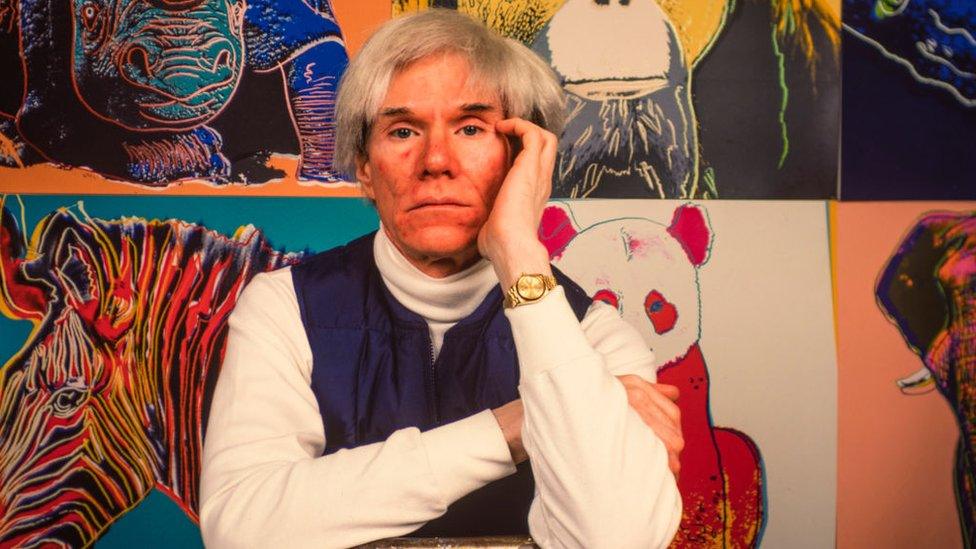
The work of Andy Warhol, who died in 1987, is the focus of a fair use case before the court
5) Animal rights and interstate commerce
With the largest population and the biggest economy in the US, California has considerable muscle to set policy not just within its own borders but across the US.
That's exactly what the state tried to do with an animal rights law mandating that any pork sold in the state had to come from humanely raised pigs - even if they involved meat-packing plants half a continent away.
The law bans the sale of most pork in California unless it was born to a sow housed with at least 24 square feet of space - much larger than most pig enclosures in the US.
Other states - and their pork business interests - think such requirements violate constitutional rules governing interstate commerce.
The Supreme Court's decision will likely have implications for other laws, like those involving climate change and out-of-state travel for abortions, where states impose burdens on others.
National Pork Producers Council v Ross will be heard on 11 October.
Related topics
- Published5 July 2022
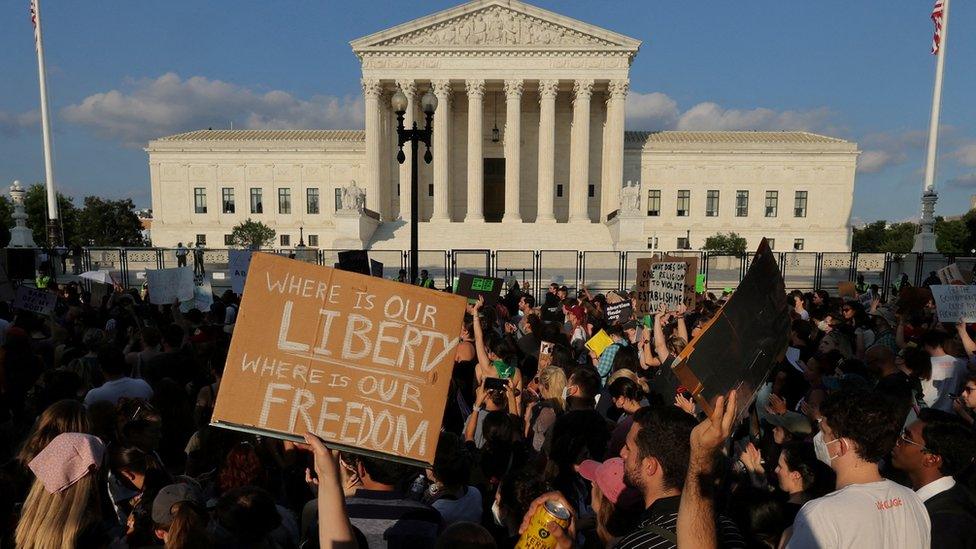
- Published29 July 2022
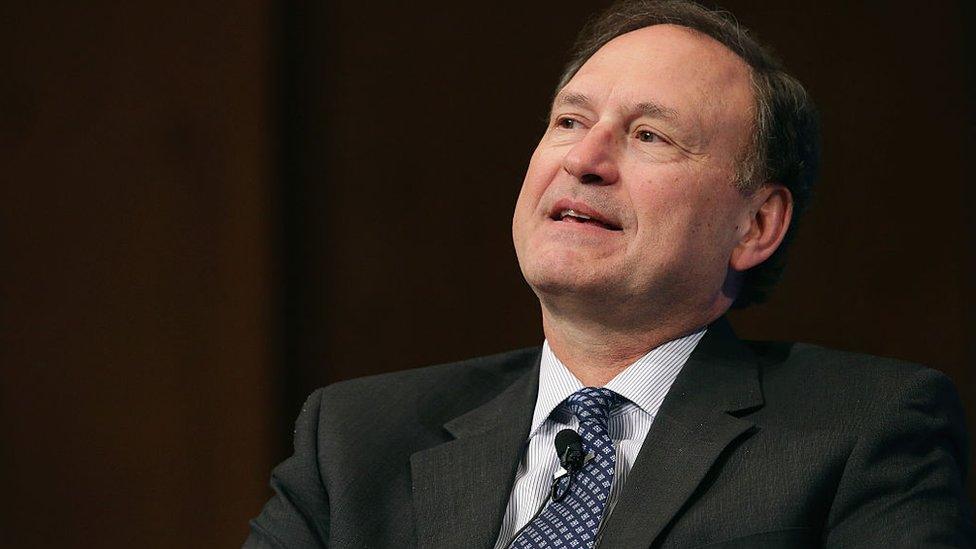
- Published30 June 2022
